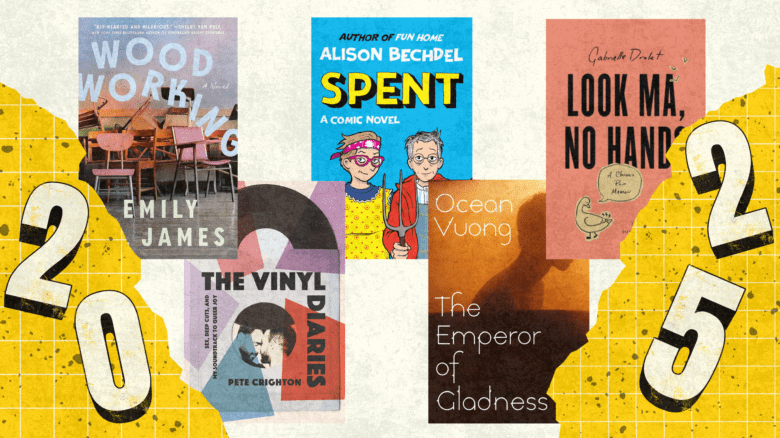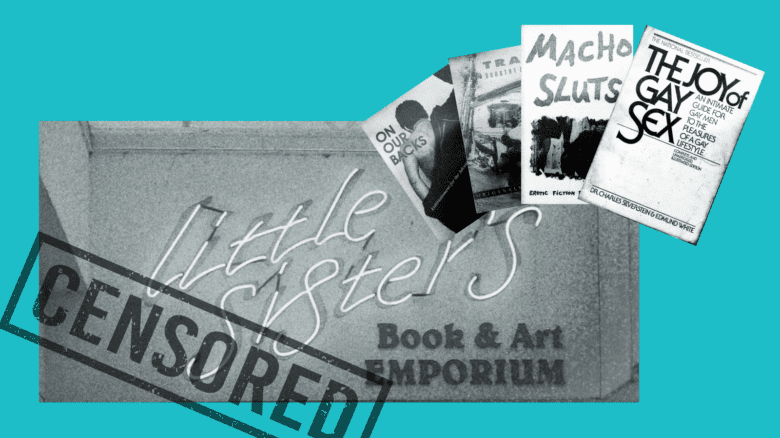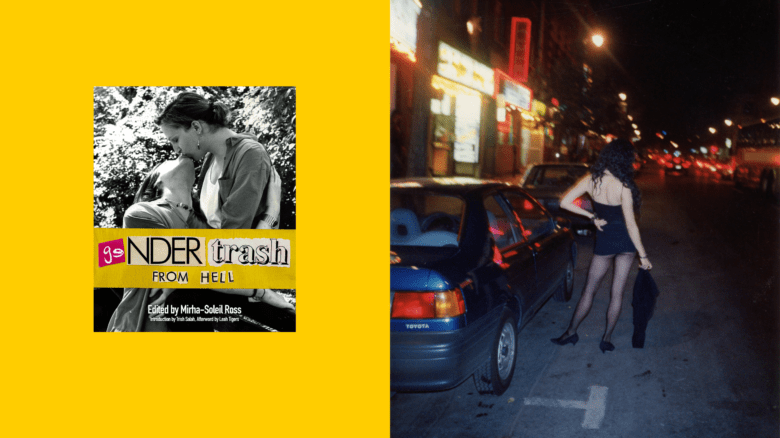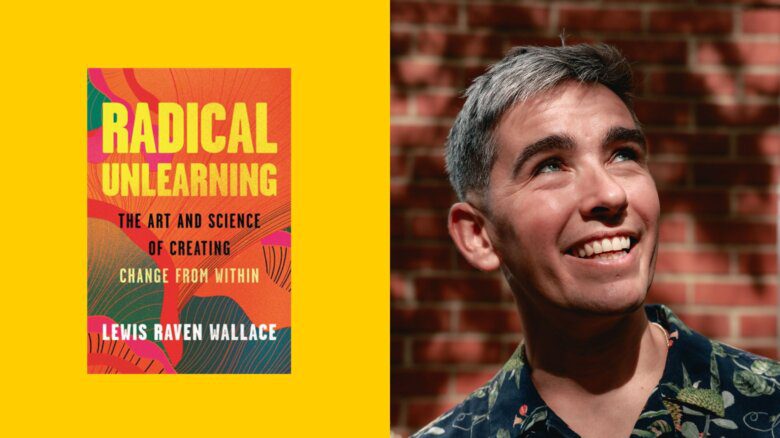Douglas Stuart easily qualifies as a literary sensation—done the hard way. He grew up on a housing estate in a rough part of Glasgow, Scotland, a place where few people pursued higher education. But Stuart did, and moved to New York City at age 24 to work as a fashion designer for the likes of Calvin Klein, Ralph Lauren and—in a purposeful move down-market for a person raised in the working class—Banana Republic. Despite his successful career in fashion, he started in his thirties to write what would become his debut novel, Shuggie Bain, which drew heavily on his own upbringing as a queer boy raised by a single mother battling alcoholism. A decade in the making, Shuggie Bain won the 2020 Booker Prize for fiction, catapulting Stuart, who is now 46, to international fame. Shuggie, now being developed into a TV series, set expectations sky-high for whatever he would produce next.
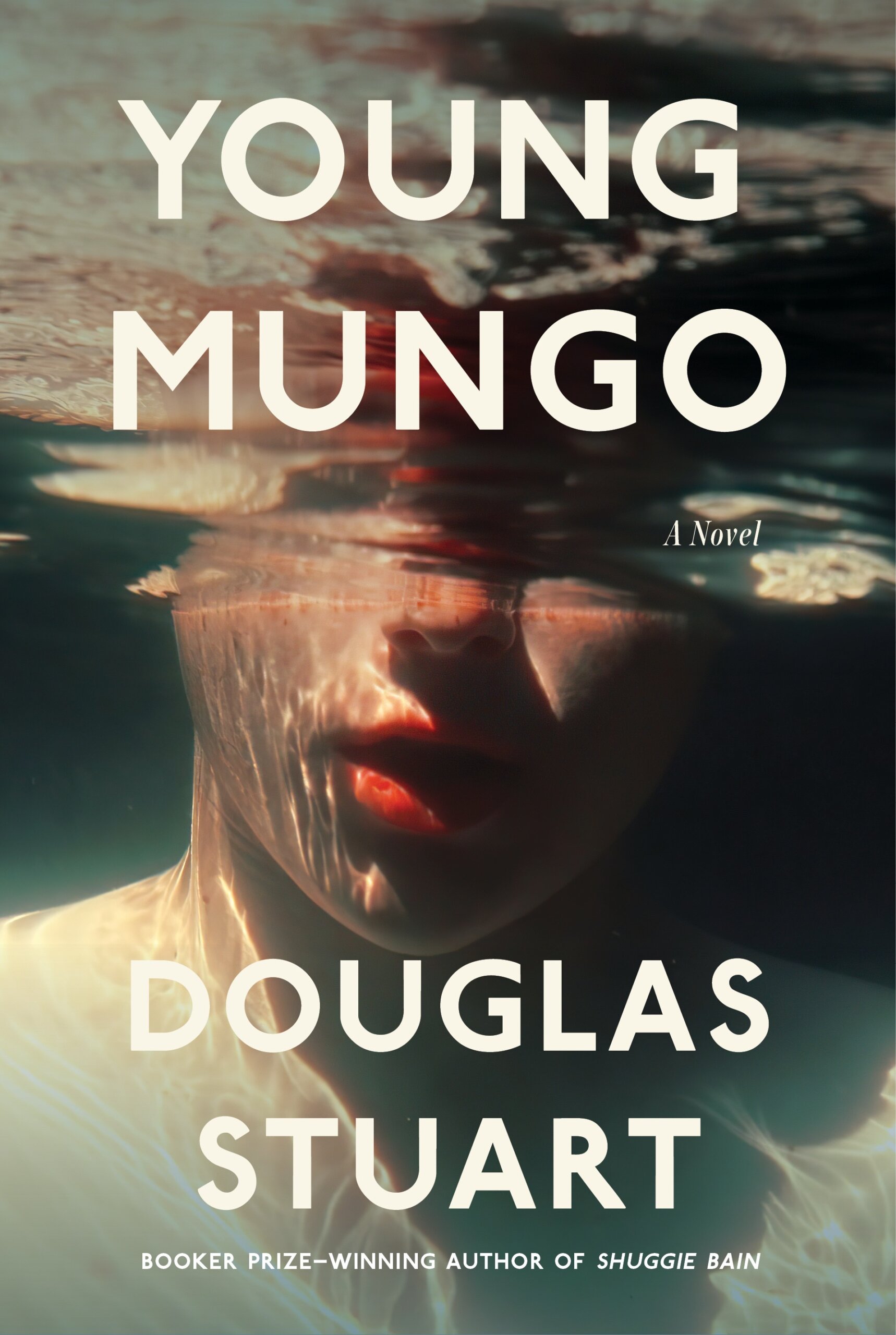
That follow-up, Young Mungo, released last spring, inhabits much of the same territory as Shuggie Bain: being gay in a claustrophobic Glasgow community bathed in toxic masculinity and poverty. In fact, the titular protagonists of each novel briefly meet each other in Young Mungo. But while the sophomore novel also shares the sharply observed descriptions and beautiful imagery of the debut, it takes place over a shorter time frame—four months instead of 40 years—and is more plot-driven, intertwining a love story between two teenage boys, one Protestant, one Catholic, with a thriller-like narrative of an out-of-town trip that becomes saturated in violence. Set in the 1990s, there are few gay role models for the characters to turn to and little patience for young men who are perceived to be soft. Yet there is love to be had.
“Mungo raised himself on his elbows and kissed James,” writes Stuart about one of the early encounters between Mungo and his same-aged neighbour. “Even more than the others, it felt like his first proper kiss, clumsy and with too much pressure on his lips. He buried the tip of his nose in James’s cheek and gasped when he felt the secret warmth of James’s tongue. It thrilled him. The tongue tasted sweet like cream and powdered vanilla, and his mouth was hot like burning peat and golden tobacco.”
Stuart was in Toronto recently for the Toronto International Festival of Authors, giving Xtra an opportunity to talk to the Booker Prize winner.
I’ve read Young Mungo, which had me totally absorbed into that very intense working-class Glasgow of the 1990s. But I haven’t read Shuggie Bain. I guess I should, since they’re a bit of a matching set?
Ultimately when I’m finished, they’ll be part of my Glasgow collection—I don’t know if it’ll be a trilogy or a tetralogy. It’s really about following masculinity, in a very narrowly defined way, through all these stages of life. I like to leave my novels with slightly ambiguous endings—or with so much life ahead of my characters—to tease out the idea that they’re still out there in the world, even though we may have left their immediate story behind.
You grew up in a rough neighbourhood in Glasgow and your two novels so far have been set there. But you’ve been living in the United States for a quite while. What brought you to the U.S.?
I moved to the U.S. in 2000. Two things brought me to New York. The first was that I had fallen in love with a young American man. We moved here when I was 24. I was really fortunate because I was a fashion student studying in London, and when all the large companies came through the degree show and offered kids jobs, the company that liked my aesthetic was Calvin Klein. Even before I graduated, I came to New York to work on Calvin Collection [the highest-end price point of the brand]. It felt right because I also wanted to be around the man who ultimately became my husband. But I didn’t know that I was going to stay forever. I thought I would return to the U.K. Yet, 22 years later, I’m very firmly a New Yorker.
You were working in fashion for a long time. At what point did you realize you wanted to become a novelist?
It’s a desire that I always harboured. But because I didn’t do an MFA and I didn’t have a circle of writer friends, I kept that very under wraps for the ten years it took me to write Shuggie. I began the novel in 2008, and I think a lot of the ten years was about, first of all, learning my craft because I was self-taught. There was an awful lot of failing in private and drafting and redrafting and then throwing it out and really polishing and excavating the novel. But also there was a psychological hurdle. I had to give myself permission to believe I was a writer and also overcome some of the imposter syndrome that was left with me from my childhood at the bottom of the British class system, coming from a place that didn’t necessarily turn to literature. We didn’t have books at home. Certainly there’s not so much recorded about working-class queer Scottish lives. I had to get to a place where I thought I could do this and I should be doing this. That took about ten years.
What did you learn writing Shuggie that you applied in Young Mungo?
At the very beginning of writing Shuggie, I wasn’t even sure what it would be—was it a novel, a collection of vignettes, short stories? Was it just recordings? Once I created the first draft, which was 1,800 pages, I got lost in it because it’s such a mammoth work. Before I began Young Mungo, which I began in 2017, I sat down and really thought of a plan. I wanted it to be plot-driven and wanted to be so focused in its vision. Shuggie is a portrait that covers 40 years: it covers grandparents, three siblings, their mother and father. I wanted Mungo to only focus on four months in this young man’s life. With these two timelines that wrap around each other, I was really increasing the pressure on this young man because the central question is: will he man up, you know, become a man? I wanted to see what kind of person he would be at the end of it after everyone had exerted their influence on him.
Mungo’s quotidian life, with his gangster brother, and homophobia all around him, and an absent mother, who is also a kind of user—that can be a tough read. And in the sections that take place when Mungo leaves that milieu, there is violence that’s also a pretty tough read.
I wanted to show that sometimes people are fighting battles on multiple fronts. Oftentimes, when you read a queer coming-of-age novel, it can be just about the queerness as an issue for the character. And I’ve known so many people whose queerness was just a small part of who they were because they were dealing with poverty, they were dealing with loss of hope in the community, they were dealing with addiction, bullying, isolation. I wanted to show that life can be multifaceted. I tried to show how resilient and how tenacious my characters are, how full of hope they are. It’s a very quiet hope, but they have the ability to pick themselves up and dust themselves off and continue on.
The love story with Mungo and his neighbour James—on one hand, it’s a respite from the other parts of his life, but on the other, it’s another challenge to face.
No. I think it’s a reason for living, and I think it’s the redemption and the salvation in the novel. In fact, I’ve written two books about love. The first book is about love between a mother and her children, primarily her youngest son. This one is about first love between two young men who are star-crossed not just because they’re queer in a very industrial working-class part of the city, but also because they cross a sectarian divide, which means something in that small community. I like love to be under threat. I like it to be measured and to be tested because I think that if love isn’t endangered in a way, what is the value of it? It’s too easy to write about love that comes easily and no one’s challenging it.
You write with incredible detail and craft. Do you have a photographic memory?
I wouldn’t say Mungo was autobiographical, but I grew up in that world and I grew up on those streets. As a young man, I was always relying on my imagination to conjure alternative realities for me. As a young queer person, growing up in a time of limited visibility and also facing addiction at home, I was always imagining another world. I’m also a very visual writer because I come from the visual arts. The one thing that fashion teaches you is to be observant, to pay attention to the tiniest details and the psychology of clothing, how things shift, how things sit together, textures and colour and contradictions. I rely a lot on building a very evocative world for my reader that sort of relies on all the senses.
Does having lived away from Glasgow for so long give you the distance to write about it? If you were still based there, you might be more concerned about what the people around you would think of your take on things. Or you may have seen Glasgow change over time, perhaps into a gentler city, so your memories would lose their sharpness.
I think every Western industrial city has become a gentler city for young queer people. We still have a long way to go, but I think the curve of progress feels like it’s heading in the right direction for many. Distance was critical to my work because, first of all, when I was growing up, I didn’t know that my life was out of the ordinary. We were certainly poor, but then so was everyone else around me. I certainly felt very overlooked, but so did everyone else around me. It was only when I went to university and, beyond that, when I got to New York, that I realized that most people hadn’t grown up as I had grown up; they had lives that hadn’t known need or want in an extreme way. That’s what the distance in New York gave me: I managed to be able to look back and think, “Well, there is a story here.” The distance also gave me a huge sense of longing. There’s a desire in me to share the story, but also to re-create these characters and this world. That came from a profound sense of homesickness, but also a profound sense of silence. We don’t often look at gay lives within industrial backdrops. Industrial backdrops are often controlled by heterosexual male narratives: what men do for work, how your father runs the home. From the queer perspective, the best that we could have been was invisible. This is a story that’s been going on for hundreds of years, people making difficult choices to not be themselves or to go off into sexual exile. I think about how many people I had grown up around who I just didn’t know were gay.
Moving in flashy New York fashion circles, do you have an awareness of bringing that poor Scottish part of yourself to any given moment?
I think our childhoods always inform who we are. When I first worked in fashion, I worked at the luxury end of the market, the collection level for Calvin Klein and Ralph Lauren. I was desperately unhappy because I was around people for whom clothing was a very disposable thing; money and wealth were worn very conspicuously. I come from a place where clothes meant a lot to us, but we had to be really choosy about what we had because we would be paying it off forever. I realized that I wanted to work at a more democratic end of the fashion spectrum because I wanted real people to be able to afford my designs, and I wanted to make them look good. When you see a real person making a real choice with their wage packet about whether they’re going to buy what you designed, I feel a huge amount of fulfillment in that.
How has winning the Booker changed your life?
It has and it hasn’t. It brought an awful lot of attention to my work, which I think is the only reason for writers to tolerate prizes; there are so many books that go overlooked. It also put an awful lot of expectation on me for quite a young novelist—young in terms of my career. I was grateful that I had written Young Mungo before I’d won the Booker. The expectations of others is a silencing place to be. For my third novel, I hope to return to that place of naiveté. Nobody prepares you for the pressure of fame. You’re propelled into the international spotlight without any media training, without an opportunity to pause and reflect. You instantly begin singing for your supper.
Did anything you said or did cause you any grief?
There are things you say that you could have said more artfully. I am a hideous control freak. That comes also from my design background, the constant prototyping and the desire to keep improving toward perfection, which can never exist. With conversations and with interviews, you would like to go back and change some of the things you said, and you cannot.
Does your husband find you to be a control freak?
He absolutely finds me to be a control freak. We have complementary personalities, which is good in that way. But I’m a control freak because I expect a high standard of myself. Young people coming from poverty learn that we have to be better than the people around us because it’s harder to get the opportunity and it’s the burden of representation. There are so few of us in the room that when you create something or you say something, you want that to be the best thing. You’re also trying to create opportunity for people behind you, to open the door a little bit wider so that they can step into it. At the luxury end of fashion, there have been people who have just fallen into what they’ve gotten in life. They have a deep belief they belong in any room they’re in. As a young man, I was always going into rooms and trying to conceal a part of myself because I felt like I was unwanted, whether that was because I was queer or whether it was because it was poor, or whether it was because I was undereducated or it was because there was addiction at home and we were having a tough time as a family.
What do you do when you go back to Glasgow?
My family still lives on the streets that I write about. So what I do when I go home is just be with my family. As an immigrant, I don’t feel like I make sense [in New York] in the way that I make sense when I’m home in Scotland. I don’t have to explain myself. I don’t have to justify myself. I can just be myself.
How would you describe the city now, compared to the city you grew up in?
After the rapid deindustrialization [that happened during the era of Prime Minister Margaret Thatcher, mostly the 1980s, which led to the closing of factories and high rates of unemployment that’s a part of both novels], it became a city that became much more open to the world. It’s always been a city of compassion and humanity, where anybody who visits will feel instantly at home and feel so welcomed by Glaswegians. It’s a city that likes to have fun.
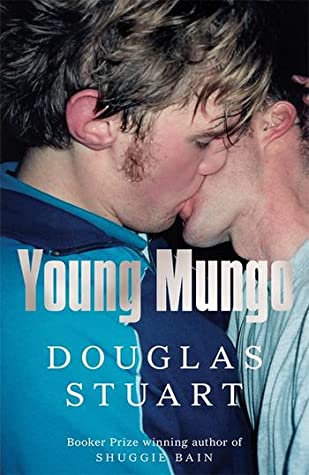
The cover of the U.K. edition of your novel has a Wolfgang Tillmans photo, a closeup of two young men sucking face, which alludes to the romance part of the book, while the North American edition has a photo of a young man’s face underwater, which alludes to a more terrifying thread of the book. Depending on which cover they see, a reader will go into Young Mungo with very different expectations.
Well, I chose both covers. That’s a particular problem of publishing a fashion designer—he’s going to design his own cover. The underwater one is by a queer photographer named Kyle Thompson. I like how it’s slightly more mysterious than the U.K. cover.
Could you ever see yourself writing a novel about, you know, upper-middle-class gay men in Manhattan?
Sure. Actually, that might be my next book. I can’t tell you much more about it than that.
This interview has been edited for length and clarity.
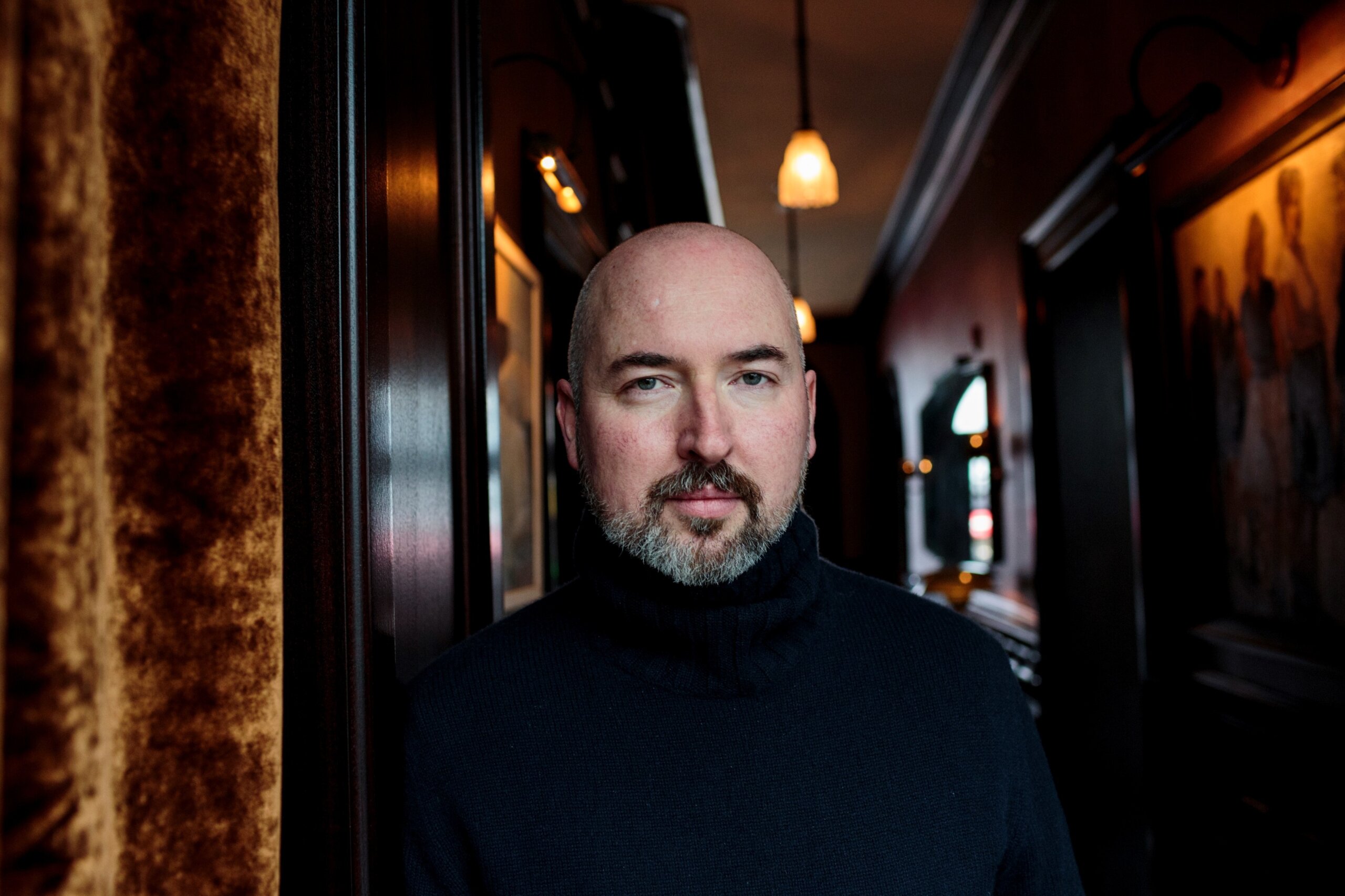

 Why you can trust Xtra
Why you can trust Xtra